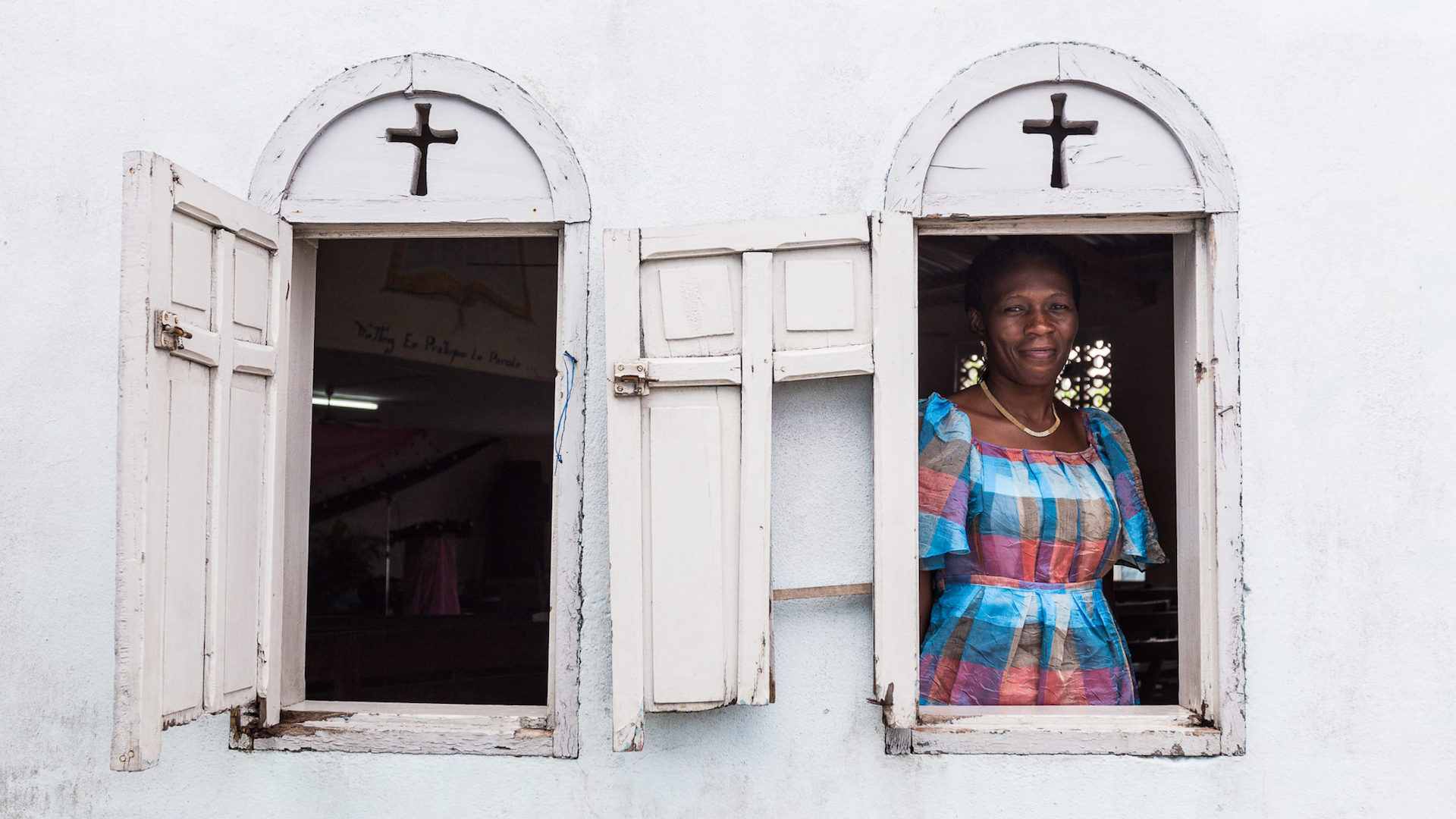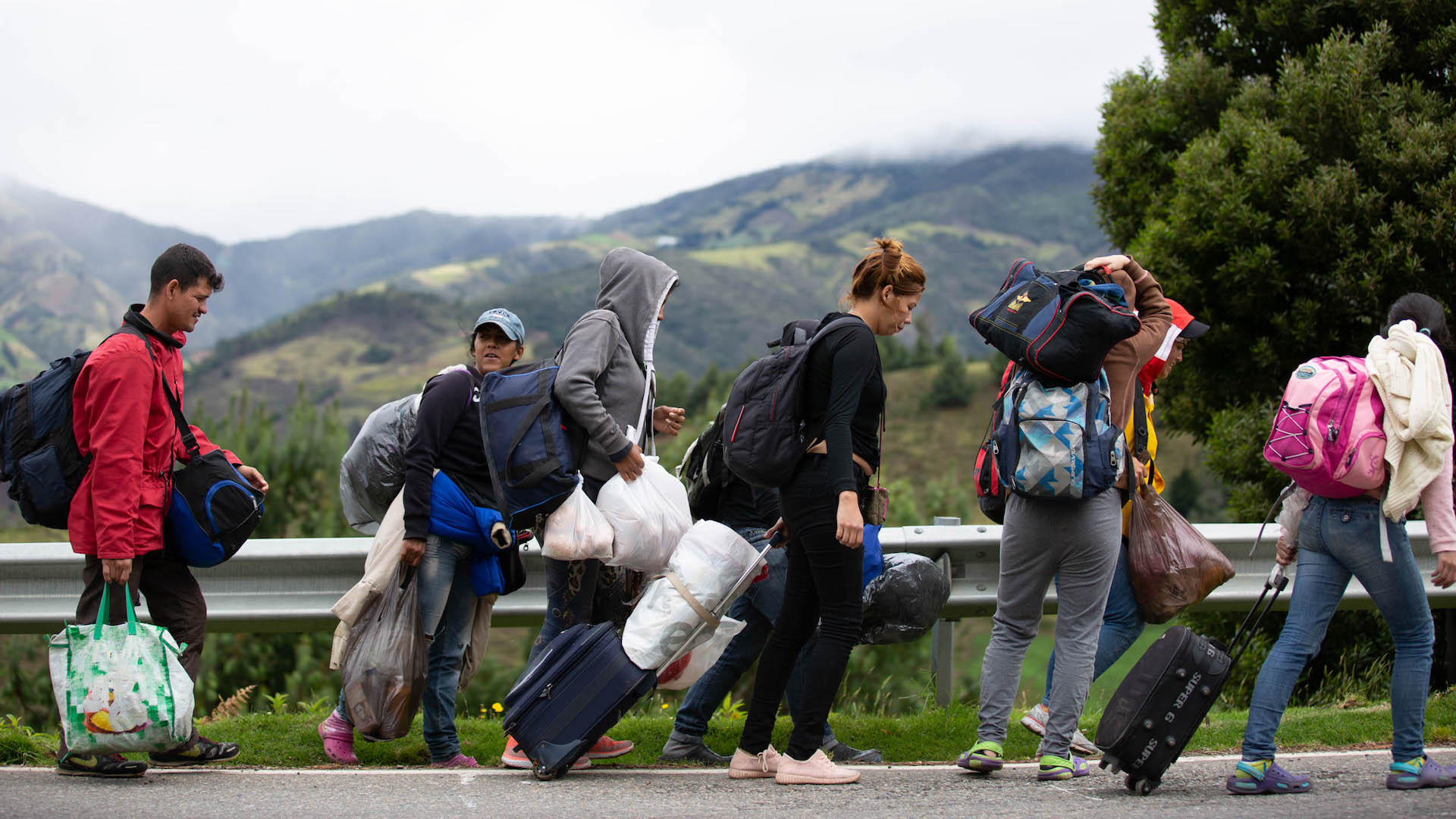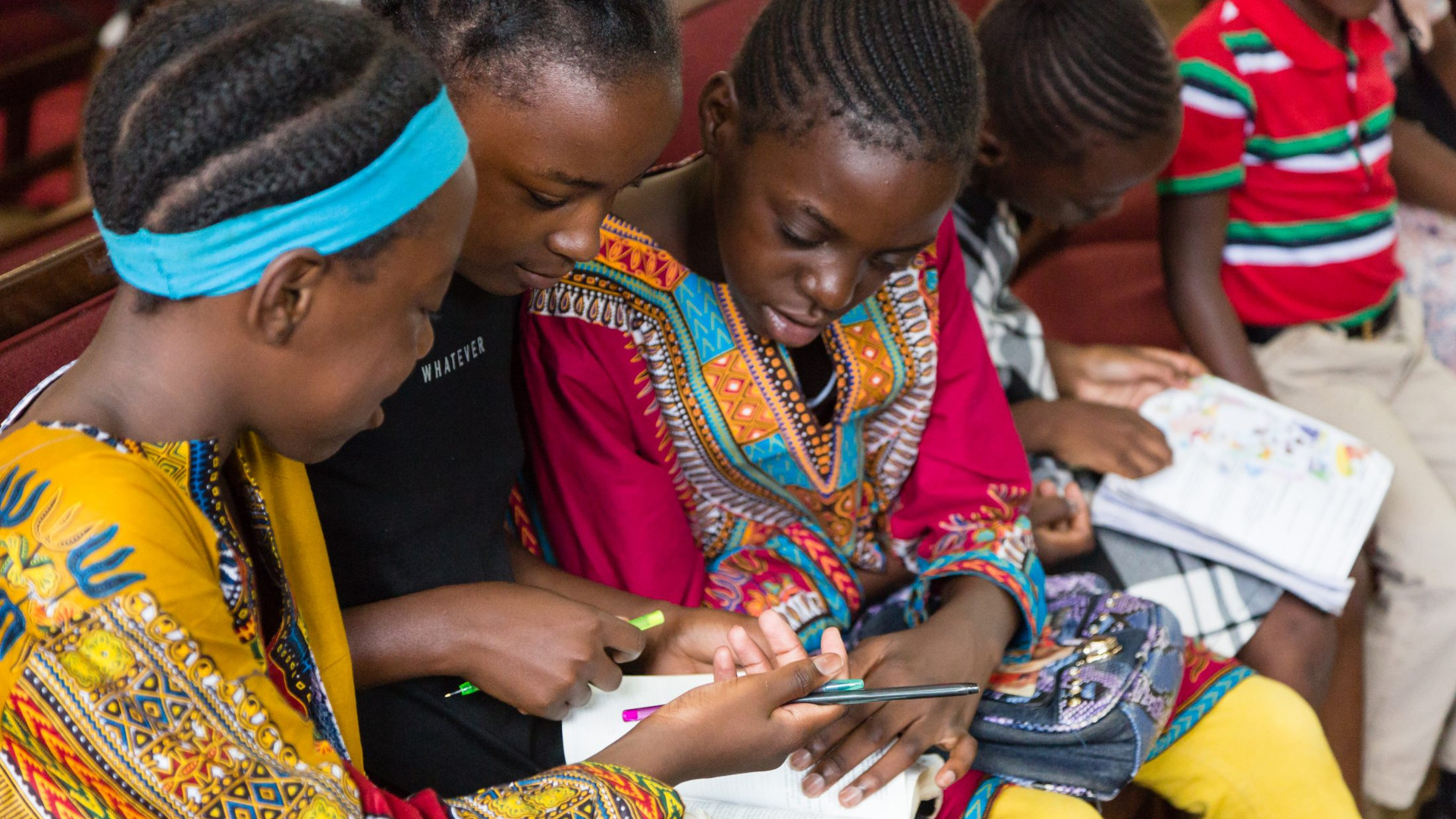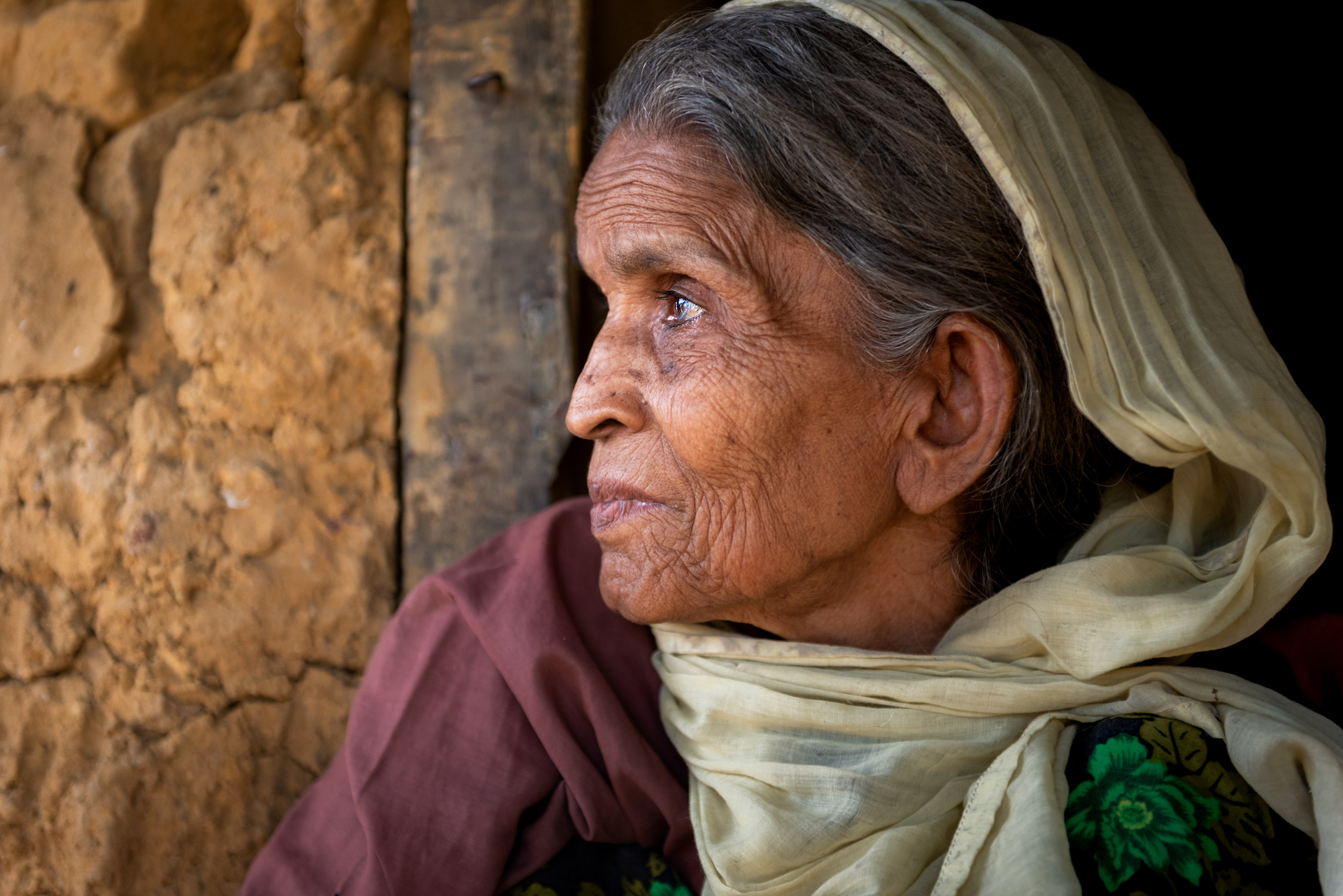
The news. We love it, and we hate it. But what are we to do with it?
Rather than ignore or despair about news reports, we can view them as opportunities to partner in prayer with missionaries and local Christians in the places they serve. We may never be able to associate a name or face of a Christian with the news headline, but we can come alongside our brothers and sisters by praying for the circumstances that affect them.
Here are a few ideas for how you can pray for missionaries and missions activity, no matter the news event.
- Pray for local Christians
- to bear a true witness of Christ in every circumstance,
- to use the event to proclaim the gospel,
- to withstand persecution or hardship that results from the event.
- Pray for missionaries
- to know how to serve the local church,
- to assess the situation with wisdom and respond in the Spirit, not in their own interests,
- to continue their work in light of this circumstance.
- Pray for governments
- to realize their need for the Lord and seek his salvation and wisdom,
- to not be antagonistic toward Christians and missionaries,
- that citizens would know the balance of respecting their governments while not adhering to laws that counter Scripture.
- Pray for people in need
- that the Lord will bring them to Christians who can serve them and share the gospel,
- that their hope and sustenance will be found in the Lord,
- that whoever is oppressing them will stop.
Before moving forward in our efforts to be proactive news consumers in 2019, let’s look back at a few headlines that matter to missions from 2018.
Stories from Central and South America
Mass migration north
A mass exodus is underway as migrants from Venezuela, Honduras, Guatemala, and El Salvador flee the violence, persecution, and poverty of their homelands. Many are headed to the US, a nation they know was built on the blood, sweat, tears, and dreams of previous generations of migrants.
One particular group garnered mass media attention. A caravan of people formed on October 13 in San Pedro Sula, Honduras, to make their way on foot to Mexico and the US in search of better opportunities. As the caravan moved north, crossing borders into El Salvador and on to Guatemala, more people joined, and the numbers were estimated to be around seven thousand people.
Volunteers help Venezuelans

Venezuelans travel on foot to the neighboring country, Colombia, to escape the harsh economic realities of their country. Photo by James Nwobu.
Nearly 2.3 million Venezuelans have left their country since 2013 because of the downward spiral of the nation’s economy. It’s estimated that five thousand Venezuelans leave every day. Volunteers, like IMB workers Theo and Monica Starr,* have aided and assisted the migrants as they make their way to other countries. The US church can join the Starrs in their efforts to serve Venezuelans in crisis.
Stories from South Asia
Pakistani Christian escapes death row
After eight years on death row, Asia Bibi was acquitted of the charge of blasphemy by the Supreme Court of Pakistan. The mother of five was accused by a group of women of blaspheming the Prophet Muhammad.
Protests and riots broke out across the country at the news of her release, and some have called for Bibi to be placed on the no-fly list. Bibi will hopefully soon be reunited with her husband and children, who have had to live without her for nearly a decade.
Missionary slain in attempt to bring the gospel to a remote tribe
American John Chau, a worker affiliated with All Nations, was killed by tribal people on North Sentinel Island after trying to share the gospel with them. The Sentinelese people live on an island in the Bay of Bengal in the Andaman Sea and are one of the last uncontacted tribes in the world. It’s estimated that their lives match that of the Stone Age.
Chau’s attempt was met with both harsh criticism and applause, from both Christians and non-Christians, and has sparked discussion about the oughtness of missions in the modern world.
Stories from Sub-Saharan Africa
Africa: the new center of Christianity?

Young African women study the Bible together. Photo from IMB Photo Library.
The African continent continues to prove false the idea that Christianity is a Western and white man’s religion. This year was a record-breaking year because, for the first time, there were more Christians on the continent of Africa than on any other continent, totaling 631 million people.
However, the findings published by Gordon-Conwell don’t specify what all 631 million people adhere to in the spectrum of Christian belief. A concern among missionaries is that some Africans may actually be practicing Mormons or Jehovah’s Witnesses, or that their Christian beliefs are intertwined with the prosperity gospel and animism.
Humans of New York interviews Hutus and Tutsis
Brandon Stanton, the founder of Humans of New York, traveled to Rwanda, Ghana, and Nigeria to photograph and interview people. In Rwanda, Stanton interviewed Hutu Christians, who shared how they were prepared to pay the ultimate price to save their Tutsi neighbors from the genocide that ruthlessly murdered eight hundred thousand men, women, and children.
The courage of these Hutu Christians saved lives. One Rwandan pastor shared a harrowing memory.
I scanned the mob of killers for recognizable faces. Many of them were Christians. Some were even from my congregation. Every time I recognized a face, I called to him by name. I said: ‘When I die, I am going to heaven. Where will you go?’ Then I pointed to the next man, and asked him the same question. Then the next. Then the next. Some of the killers grew nervous. They began to argue amongst themselves. Nobody wanted to be the first to kill. Soon they were threatening to shoot each other. And they began to leave, one by one, until all of them had run off.
The courage of this pastor and his flock saved more than three hundred lives.
Stories from Europe
The 100-year anniversary of the Armistice
The West solemnly remembered the end of World War I in front of the Tomb of the Unknown Soldier under the Arc de Triomphe. November 11 marked the one-hundred-year anniversary of the signing of the Armistice that ended World War I on the Western front. The annual remembrance is known as Armistice Day in France and Remembrance Day in the United Kingdom. World leaders, veterans, and the public gathered in Paris to commemorate the end of the war and remember the death of a generation.
The BBC reported that 9.7 million soldiers and 10 million civilians died during the Great War.
The US celebrates Nov. 11 as Veterans Day, where all of the nation’s veterans and their service are remembered. Up until 1954, the US also called the celebration Armistice Day. It was changed to Veteran’s Day at the request of veteran organizations.
The UK welcomed a new duchess
May 19 marked a milestone for the UK’s royal family when Prince Harry married Meghan Markle. Their wedding was a marriage of cultures and was viewed as a celebration of racial and cultural diversity. Meghan is an American and is biracial, and Harry is white and English. Their wedding featured elements of both cultures and was inclusive of people of many backgrounds.
There was an era where this would not have been possible, especially in British monarchy. Many view the wedding as a hopeful sign of progress among peoples of different races and cultures.
Stories from East Asia
Forced sterilizations don’t fade in the land of the rising sun
A dark and startling secret emerged as Japan prepares to host the 2020 Olympics and Paralympics. After World War II, Japan instituted the Eugenic Protection Law that encouraged and enforced forced sterilizations of people the government considered “inferior.”
People with mental and physical disabilities fell into this category. There are an estimated twenty-five thousand people who were forcibly sterilized through surgery, electric shocks, starvation, and beatings. It was believed by many that people with disabilities should not reproduce for fear of the disability being passed on to the next generation.
Victims and survivors are campaigning and taking legal action for justice—an official apology and compensation. Paralympic athletes are among those advocating. Japan hosted the Paralympic Games in 1964, and at that time, the law was still being enforced. It was not repealed until 1996.
South Koreans voluntarily check in to “prison”
This year marks the tenth anniversary for Prison Inside Me, a retreat center in South Korea designed to provide rest and isolation for South Korea’s overwhelmed. Koreans can reserve a room designed for solitary confinement in order to give their minds and bodies a break from work, academic studies, or pressures of home life. Prison Inside Me also offers spiritual group activities, but patrons spend most of their time in their cells alone.
According to this report, Koreans spend an average of 68 hours per week at work. The government passed legislation earlier this year to mandate a limit of 52 hours in order to give Koreans “the right to rest.”
Stories from North Africa and the Middle East
US moves its embassy from Tel Aviv
On May 14, the US opened its new embassy in Jerusalem. This move signaled the recognition of Jerusalem as Israel’s capital, instead of Tel Aviv, where the US embassy once was. The decision was affirming for Israel, but it angered many Palestinians, the Arab world, and Western Allies. The opening ceremony coincided with the seventy-year anniversary of Israel’s statehood.
Jerusalem has been a holy site for Jews, Christians, and Muslims for thousands of years.
Syrian granted asylum after seven months in airport
Syrian Hassan Al Kontar spent seven months in the Kuala Lumpur airport in a quest to receive asylum. Al Kontar worked in the United Arab Emirates until he wasn’t granted a new passport. He did not want to return to Syria because he feared being drafted into the military.
Malaysia is one of the few countries where Syrians don’t need visas.
His plight made waves on social media, with countless people following his journey. A group of Canadians heard his story and applied for asylum on behalf of Al Kontar. Canada granted Al Kontar permanent residency, and he landed in Vancouver on November 26.
Stories from Southeast Asia
Earthquake devastates Indonesia
On September 28, a 7.5-magnitude earthquake devastated communities on the island of Sulawesi in Indonesia. According to October estimates, the death toll climbed to 1,763 with more than 5,000 people still missing. Many people were buried in mass graves.
An estimated sixty-two thousand Indonesians were displaced because of the damage. The US church can come to the aid of Indonesians by donating to Baptist Global Response’s disaster relief fund.
Displacement an ongoing reality for the Rohingya

A Rohingya woman at a refugee camp. Photo by Luke In.
There are almost eight hundred thousand displaced Rohingya people living in refugee camps in Bangladesh. Last year, Myanmar’s military was accused of committing genocide against the Rohingya people.
This fall, the Rohingya were offered repatriation and relocation back to Myanmar’s Rakhine state as a result of talks between the governments of Myanmar and Bangladesh. However, the announcement was met with widespread protests. So far there haven’t been any volunteers who are willing to take the government up on the offer, and plans have been delayed until next year.
Stories from Central Asia
Syrians pressured to leave Turkey
Turkey opened its borders to hundreds of thousands of Syrians who fled from the violence unfolding in Syria. Three million Syrians settled in Turkey and have planted their lives and futures in communities. However, Turkish officials have now said that refugees are taking jobs from Turks and that there are too many cultural differences.
In April, Syrians were encouraged to go home. Syrians voiced their concerns over the safety of returning to Syria while war is still raging on. Many have nothing to go back to. Syrian refugees have put down roots in Turkey and leaving would mean surrendering the jobs and livelihoods they’ve fought so hard for.
A Nobel Prize Winner highlights atrocities of ISIS
Nadia Murad, a Yazidi woman who survived sexual slavery at the hands of the Islamic State, was awarded a Nobel Peace Prize. After escaping, Murad began advocating and campaigning for investigation and recognition of ISIS war crimes.
In 2014, thousands of Yazidi women and girls in northern Iraq were captured and raped by ISIS. The Yazidis are an Iraqi religious minority. Their faith has ties to Zoroastrianism, Christianity, Islam, and Judaism.
Thousands of Yazidis were slaughtered in an ethnic cleansing. Reuters reported that at least 9,900 were killed or kidnapped in only a matter of days. Three thousand of this number were women and children who were sold into slavery.
Caroline Anderson is a writer and photographer with the IMB. She currently lives in Southeast Asia. Her childhood in Asia consisted of two important ingredients: braving hot chili peppers and telling people about Jesus.

